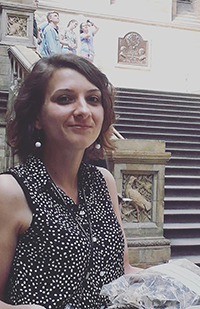 Emanuela Di Martino. Dipartimento di Scienze Biologiche, Geologiche e Ambientali, Università di Catania, Corso Italia 57, 95129, Catania, Italy. (Corresponding author) emanuela.dimartino@unict.it; ORCID: 0000-0002-3892-4036
Emanuela Di Martino. Dipartimento di Scienze Biologiche, Geologiche e Ambientali, Università di Catania, Corso Italia 57, 95129, Catania, Italy. (Corresponding author) emanuela.dimartino@unict.it; ORCID: 0000-0002-3892-4036
Emanuela Di Martino is a tenure-track researcher in paleontology and paleoecology at the University of Catania, a position she has held since March 2024. Previously, she was a researcher at the Natural History Museum of the University of Oslo, where she was awarded the prestigious Young Talent Research Grant by the Research Council of Norway. Prior to that, she conducted research at the Natural History Museum in London, supported by a Leverhulme Trust Research Grant and a Marie Curie Early Career Fellowship. As an invertebrate paleontologist and bryozoan taxonomist, she leverages bryozoans as a model system to address key paleobiological questions. Her work focuses on biodiversity dynamics, paleoecological and paleoenvironmental reconstructions, and macroevolutionary processes.
![]()
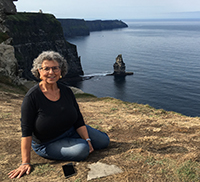 Antonietta Rosso. Dipartimento di Scienze Biologiche, Geologiche e Ambientali, Università di Catania, Corso Italia 57, 95129, Catania, Italy. rosso@unict.it; ORCID: 0000-0001-5565-9513
Antonietta Rosso. Dipartimento di Scienze Biologiche, Geologiche e Ambientali, Università di Catania, Corso Italia 57, 95129, Catania, Italy. rosso@unict.it; ORCID: 0000-0001-5565-9513
Antonietta Rosso is a professor of paleontology and paleoecology and the scientific coordinator for the Museum of Paleontology at the University of Catania (Italy). Specialized in the taxonomy of bryozoans, she has extensive expertise in analyzing the composition and structure of both present-day (primarily Mediterranean) and fossil (especially Plio-Pleistocene) communities, with a focus on their temporal dynamics, including those influenced by human activities. Key research interests include coralligenous bioconstructions, cave biostalactites, extreme environments such as cold-water coral habitats and submarine caves, and the impacts of global change on biodiversity, including the spread of non-native species. In addition to research, she is deeply committed to science communication and public outreach.
![]()
 Paul D. Taylor. Natural History Museum, Cromwell Road, London, SW7 5BD, UK. p.taylor@nhm.ac.uk; ORCID: 0000-0002-3127-080X
Paul D. Taylor. Natural History Museum, Cromwell Road, London, SW7 5BD, UK. p.taylor@nhm.ac.uk; ORCID: 0000-0002-3127-080X
Paul Taylor has been researcher based at the Natural History Museum in London since 1979. He specializes in the taxonomy and evolutionary palaeobiology of bryozoans. He has published over 400 research articles, written four popular books on fossils, and was recipient of the Palaeontographical Society’s Gold Medal in 2024.
![]()
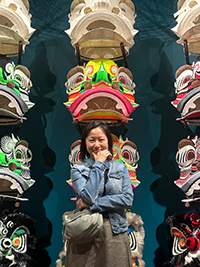 Ruby W.T. Chiu School of Biological Sciences, and Swire Institute of Marine Science, The University of Hong Kong, Kadoorie Biological Sciences Building, Hong Kong, China. rubychiu@ymail.com; ORCID: 0000-0001-6663-9526
Ruby W.T. Chiu School of Biological Sciences, and Swire Institute of Marine Science, The University of Hong Kong, Kadoorie Biological Sciences Building, Hong Kong, China. rubychiu@ymail.com; ORCID: 0000-0001-6663-9526
Ruby Chiu is an educator and environmental scientist with interests in macroecology, paleoclimatology, and palaeontology. She studied under Dr. Moriaki Yasuhara at the University of Hong Kong for her PhD. Currently, she works as the Integrated Science Panel Head at CCC Ming Yin College in Hong Kong.
![]()
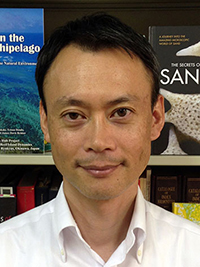 Kazuhiko Fujita. Department of Physics and Earth Sciences, Faculty of Science and Tropical Biosphere Research Center, University of the Ryukyus, Okinawa, 903-0213, Japan. fujitaka@sci.u-ryukyu.ac.jp; ORCID: 0000-0002-9833-007X
Kazuhiko Fujita. Department of Physics and Earth Sciences, Faculty of Science and Tropical Biosphere Research Center, University of the Ryukyus, Okinawa, 903-0213, Japan. fujitaka@sci.u-ryukyu.ac.jp; ORCID: 0000-0002-9833-007X
Kazuhiko Fujita has been a marine micropaleontologist in the Faculty of Science at University of the Ryukyus since 2001. He has special interests in ecology and paleoecology of large benthic foraminifers and also in the geohistory of coral reef developments in the Ryukyu Archipelago.
![]()
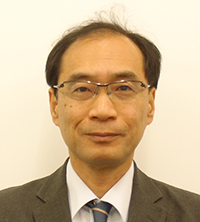 Akihisa Kitamura. Institute of Geosciences, Shizuoka University, Shizuoka, 422-8529, Japan. seakita@ipc.shizuoka.ac.jp; ORCID: 0000-0002-9928-3746
Akihisa Kitamura. Institute of Geosciences, Shizuoka University, Shizuoka, 422-8529, Japan. seakita@ipc.shizuoka.ac.jp; ORCID: 0000-0002-9928-3746
Akihisa Kitamura has been an invertebrate paleontologist in the Faculty of Science at Shizuoka University since 1993. He has published over 160 research papers on Quaternary shallow-water environments and Holocene paleoseismology in and around Japan, with a focus on mollusks. He is the president of Palaeontological Society of Japan for 2023 –2024.
![]()
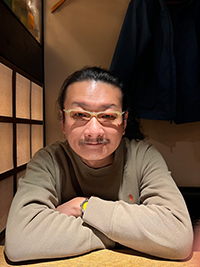 Moriaki Yasuhara. School of Biological Sciences, Area of Ecology and Biodiversity, Swire Institute of Marine Science, Institute for Climate and Carbon Neutrality, Musketeers Foundation Institute of Data Science, and State Key Laboratory of Marine Pollution, The University of Hong Kong, Kadoorie Biological Sciences Building, Hong Kong, China. yasuhara@hku.hk; ORCID: 0000-0003-0990-1764
Moriaki Yasuhara. School of Biological Sciences, Area of Ecology and Biodiversity, Swire Institute of Marine Science, Institute for Climate and Carbon Neutrality, Musketeers Foundation Institute of Data Science, and State Key Laboratory of Marine Pollution, The University of Hong Kong, Kadoorie Biological Sciences Building, Hong Kong, China. yasuhara@hku.hk; ORCID: 0000-0003-0990-1764
Moriaki Yasuhara is an associate professor of environmental science in the School of Biological Sciences and the Swire Institute of Marine Science at the University of Hong Kong. He has broad interests in integrating organismal biology (ecology and evolutionary biology), paleontology, and paleoceanography/paleoclimatology, especially by using highly resolved micropaleontological records. His research has focused on the spatio-temporal dynamics of large-scale biodiversity patterns, the impact of climate on species diversity, and the controlling factor(s) of biodiversity pattern/change in deep-sea, shallow-marine and pelagic ecosystems. His specialties also include microfossil-based conservation paleobiology and paleontology of the Ostracoda in general. Recently, Moriaki is especially interested in the tropical biodiversity and the development of deep-learning-based automation of species identification and morphological measurement. (Link to Yasuhara Lab website: https://moriakiyasuhara.com/)

